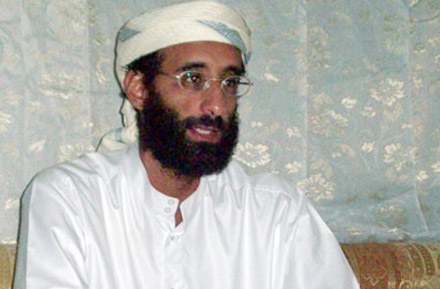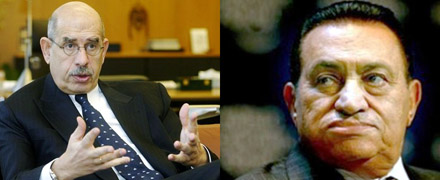
Said Benjebli, Casablanca, July 19, 2009.
Said Benjebli, president of the Association of Moroccan Bloggers, describes the group (from an interview in Afrik.com):
- “Our movement is secular and our members come from very diverse backgrounds. Atheists, socialists, Amazigh, secular… everyone is represented in our association. We are above all free and we operate in a democratic manner. …
- “We cannot insult religions. Whether it’s Muslim, Jewish, Christian or otherwise. Within our association, we are able to differentiate between criticisms and insults. We of course encourage criticism, but we neither insult people nor what is sacred. Regarding homosexuals, I have backed some in the past. I have no problem with that. I think they have every right to express themselves, to run a blog or a website. … This is to tell you that we respect everyone and remain open to all trends.”
Regarding the National Dialogue on Media and Society:
- “This initiative comes from the very top. Jamal Eddine Naji, the coordinator, is a close friend of the King. He was commissioned by the ruling party, Authenticity and Modernity Party, to impose the state agenda without taking the opinion of journalists into account. …
- “If it is a dialogue, it is being done without the real actors of the electronic media. They instead want to keep the press at bay, impose their rules, impose electronic censorship and muzzle it. I personally received an official invitation. I attended two of their meetings, once as a representative of the association of bloggers and another as a journalist. But once they realized that we were serious, that our proposals were credible, they discredited us by calling us fundamentalists to silence us. So we steered clear.”
Regarding the climate of blogging in Morocco generally:
- “We live in a constant state of arrests and releases. … It is true that there are no laws that regulate the blogosphere to guarantee the right to free expression. However, what the authorities are looking for is a way to censor blogs. They have the means to put pressure on the media — through printing presses, distribution agencies, etc. — but blogs are difficult to censor. That is why the authorities are severe with bloggers.”
I met Said Benjebli last summer, when by coincidence I was in Casablanca on the same night as a meeting of the Association of Moroccan Bloggers. I attended by invitation from blogger Mounir Bensalah, and the photo above is from that occasion.
I have a few questions. They aren’t rhetorical questions, these are things I’m genuinely not sure about.
- Granted that 2009 wasn’t a great year for freedom of expression in Morocco. I could list the cases here, but others have done that. Said Benjebli isn’t alone in fearing that the Moroccan authorities are turning away from their earlier promise of greater freedoms. But is it possible that the recent wave of criminal prosecutions is, paradoxically, a result of those greater freedoms? Perhaps they are growing pains as journalists and bloggers test the limits, and the state struggles to define its new boundaries?
- Should a bloggers’ association be focused primarily on defending the rights of bloggers who test the limits, or does it have a broader constituency? I would certainly want such a group backing me if I were a Moroccan blogger who unknowingly ran afoul of the famous red lines. On the other hand, I can’t help feeling that there are infinite creative ways to express ourselves, without directly taking on the state in areas where it feels most insecure. Technology, education, history, the arts, the economy, philosophy, social science, and religion are all domains of self-expression that aren’t necessarily political. By defining bloggers as journalist-activists who test the political limits, is the association scaring away, rather than promoting, other worthy forms of self-expression?
- What are the right limits on freedom of expression? Surely we’ll agree that no right is absolute. Even in the U.S., a phone call to a Congresswoman threatening to torch her house, or an active-duty soldier calling on his fellows to disobey the president’s orders, will earn the attention of the authorities. Those may be extreme cases, but where do we draw the line? The Moroccan state has the right, even the duty, to protect its territorial security and social stability. If certain forms of expression are seen as a threat, it can pass laws to restrict them. We may disagree with those laws, as I have in the past, in which case we have two choices — lobby to change them while continuing to obey them, or break them consciously to show they are unjust. The second choice, civil disobedience, involves accepting the penalty as a form of protest. So what are the right limits on freedom of expression in Morocco? Should bloggers be allowed to write literally anything? What should the state do when bloggers go over the line?
- As a developing country in a troubled world, Morocco has its share of problems. However, when I look around me, I see a diverse population, a growing economy, and young people with a lively creative imagination. It pains me a bit to see reports of Morocco slipping back into a dark age of heavy-handed repression, because that doesn’t jibe with what I see around me every day. So let’s assume for a moment that Morocco is moving forward, but in a two-steps-forward, one-step-back kind of way. Sometimes we’re made painfully aware of the limits on progress — and yet progress is being made. What is the best way to promote self-expression in such a context? Where will it do the most good?
UPDATE: Hisham of Al Miraat has published an interview on Global Voices with blogger Bashir Hazzam, who was sentenced to four months in prison for blogging about a demonstration in the southern town of Tarhjicht. He was released on Feburary 8, two months after his arrest, partly due to interntional pressure. He explains his views about blogging this way:
- “I discovered the world of blogging when I was a student. I came across a number of blogs and realized that blogging enables people to publish their ideas easily, without control and for free. I liked the idea so much that, after a brief research, I ended up creating my own blog…. The blogosphere enabled me to exchange views and ideas and communicate with many bloggers and writers from around the world. … What happened will not affect me. Despite the arbitrary detention, I kept my writing style intact. It will not affect my thoughts or my views. … I would invite people to take advantage of technologies offered by the Internet to highlight their skills and talents, and express their ambitions and aspirations through blogging, so as to break the systematic marginalization imposed by authoritarian states, especially on the youth.”

